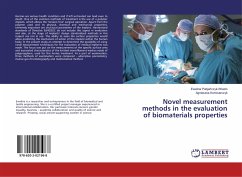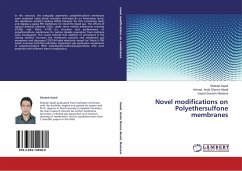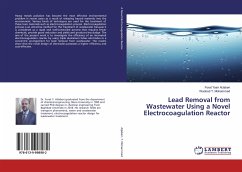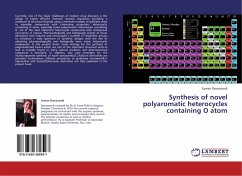
Novel measurement methods in the evaluation of biomaterials properties
Versandkostenfrei!
Versandfertig in 6-10 Tagen
24,99 €
inkl. MwSt.

PAYBACK Punkte
12 °P sammeln!
Hernias are serious health condition and if left untreated can lead even to death. One of the common methods of treatment is the use of a polymer implant, which allows the "tension free" surgical operation. Apart from the polymer used and its physical, chemical and mechanical properties, extremely important are structural parameters of the implant. Harmonized standards of Directive 93/42/EEC do not include this aspect in evaluation and also, at the stage of implants' design standardized methods in this respect are not in use. The ability to asses the surface properties would allow predicting t...
Hernias are serious health condition and if left untreated can lead even to death. One of the common methods of treatment is the use of a polymer implant, which allows the "tension free" surgical operation. Apart from the polymer used and its physical, chemical and mechanical properties, extremely important are structural parameters of the implant. Harmonized standards of Directive 93/42/EEC do not include this aspect in evaluation and also, at the stage of implants' design standardized methods in this respect are not in use. The ability to asses the surface properties would allow predicting the mechanism of action of the implant within the human body. In the present study an attempt to determine the possibility of using novel measurement techniques for the evaluation of medical implants was made. The focus was put on the measurements of the specific surface area and associated characteristics of the knitted monofilament meshes made of polypropylene, used for the hernia treatment. As a part of examination, three methods of examination were compared - adsorptive porosimetry, inverse gas chromatography and mathematical method.












